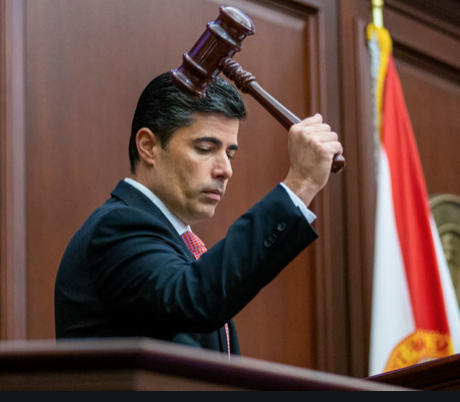By John Haughey
The Center Square
March 10, 2020

Rising anxiety over the coronavirus and a plummeting stock market could force Florida lawmakers to consider dramatic 11th-hour revisions to the state’s budget as the legislative session nears its scheduled Friday adjournment.
House Speaker Jose Oliva, R-Hialeah, warned lawmakers that economic “panic” is creating uncertainty and state financial projections, especially those related to sales-tax and tourism revenues, may need to be reassessed.
Oliva issued the caution as the House convened Monday morning, noting the stock market had halted trading to suspend an avalanche of sell orders.
“The 10-year yield is at an all-time low,” he said, noting “there’s some word” the Federal Reserve Board may shave another three-quarter points off the interest rate.
“We may be facing a very real challenge here,” Oliva said. “The coronavirus, while it has had a minute effect (in Florida), the panic coming out of it is having a real effect.”
The Legislature must “come together and make sure that, before we put this budget in the books, that we’re doing everything we can to leave future Legislatures with the power to overcome it,” he said.
Oliva requested Senate President Bill Galvano, R-Bradenton, and House Democratic Caucus Leader Kionne McGhee, D-Cutler Bay, meet with him to assess unfolding events.
Gov. Ron DeSantis has requested $25 million to deal with the coronavirus emergency, and the state is slated to receive about $22 million from the $8.3 billion federal emergency funding package Congress approved last week.
The potential pause in putting the “budget in the books” comes as lawmakers negotiate differences between proposed fiscal year 2021 spending plans. The Legislature would need to adopt a budget Tuesday if the 60-day session is to adjourn as scheduled Friday.
The proposed $91.3 billion House budget is nearly $1.5 billion less the Senate’s tentative plan, and closely aligns in overall spending with Gov. Ron DeSantis’ $91.4 billion budget request. This year’s budget is $90.98 billion.
Oliva and Galvano have said the session is likely to be extended beyond Friday to meet a mandated 72-hour pause before final adoption of annual budgets, despite breakthroughs achieved in weekend budget conferences.
On Saturday, negotiations produced agreements that include full funding for affordable housing programs; a 3 percent across-the-board pay raise for state employees, with corrections officers receiving an additional salary boost; money to sustain VISIT FLORIDA for another year; and a $100 million commitment to Florida Forever.
On Sunday, progress was made in teacher pay raises and environmental and transportation spending.
What remains unresolved as of mid-day Monday was basic student allocation (BSA) formulas. The House wants to raise it by $50, and the Senate has countered with an $18 increase.
Of mounting concern to school districts is House Bill 5007, which would require state agencies, local governments and school boards to increase contributions by $404.5 million to chip away at the Florida Retirement System’s $22 billion unfunded liability. The bill awaits DeSantis’ signature.
School boards would absorb $232.7 million of that increase and are hoping to use a boosted BSA to offset some of that cost.
According to the state’s Department of Management Services (DMS), the Florida Retirement System (FRS) provides retirement income benefits to 647,942 active members, 4.425 million retirees and 32,670 enrolled in its Deferred Retirement Option Program (DROP) plan.
The 50-year-old FRS, the nation’s fourth-largest public pension plan, is invested heavily in the stock market. HB 5007 is among bills and budget measures based on projections that could no longer be valid as “panic” grips the market and the economy.
How to gauge that impact, Oliva warned, is the “very real challenge” lawmakers face.
